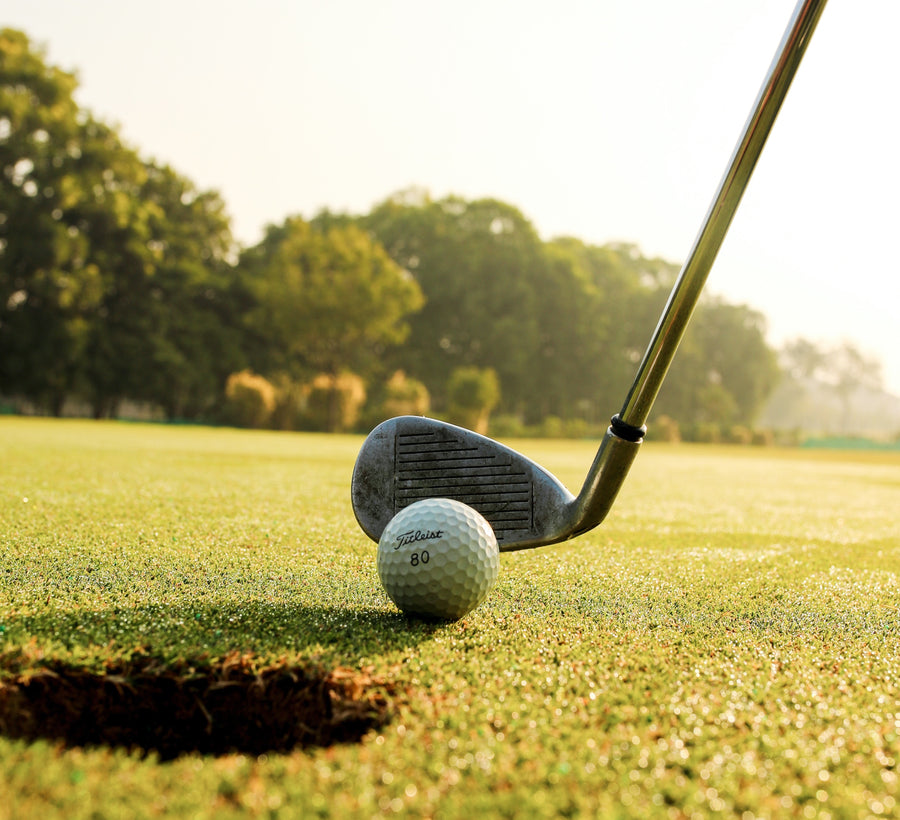When you think of sports that demand exceptional visual performance, baseball or hockey are probably the first ones that come to mind. Both sports require players to rely on contrast sensitivity to spot and track objects in harsh lighting conditions so they can react quickly to what’s happening on the field. If athletes can’t adapt quickly and make decisions, they can’t get an edge over their opponents.
While golfers don’t have to react quickly or make swift decisions as one would on a basketball court or an ice rink, the sport requires resilient eyesight for players to excel at it. For example, golfers tend to find it easier to line up a putt on the front nine than clinching a birdie on the 18th. After playing all morning in the sun, eye fatigue factors into how well golfers perform late into a game. The glare of the sunlight makes it difficult to judge small but important details.
“If you’re out playing a full round of golf for four or five hours, glare compromises your ability to see where a ball is going and exhausts your eyes,” says Professor James Stringham, former professor at Duke University and Chief Scientific Officer at MacuHealth. “It’s going to wear down all the facilities that would normally help you, particularly reading the green or seeing subtle variations in the slope of it.”
What can golfers do to strengthen their vision? We’ll look at ways to combat glare and eye strain so players can get the edge on the course.
Test for Contrast Sensitivity
Evaluating the direction of the grain of the grass and determining whether it’s slow, fast, wet or dry is difficult for a golfer if they have poor contrast sensitivity. Eye care professionals believe that testing for contrast sensitivity is a better measure of your visual acuity than the standard examination of reading letters off a chart. Even if you have 20/20 vision, some conditions, such as low macular pigment density, diminish your ability to distinguish the foreground from the background.
“You’re better able to judge the slope because of contrast improvement,” says Professor Stringham.
A contrast sensitivity test can measure the ability to distinguish the finer increments of light versus dark. Once established, your eye care professional can recommend ways to rebuild your macular pigment to improve your visual acuity and improve your ability to read the green.
Do sunglasses help?
Have you ever noticed that PGA golfers rarely wear their sunglasses when setting up a drive or making a putt? Donning a pair of polarized lenses would seem practical as harmful UV rays are practically unavoidable on the course. Even with a visor to block out the sunlight, light can reflect off someone’s clubs or golf cart, which would make this piece of eyewear essential.
Sunglasses can distort the edges of a golfer’s eyesight, as many of them utilize the corners of their vision when they make a swing. Many golfers consider accuracy more important than dealing with the sun’s aggressive rays. Unfortunately, the trade-off is that eyes become more tired as the game progresses and need the proper nutrients to help their eyesight endure until their back celebrating at the club.
Feeding Your Eyes
The eyes need the right kind of nutrition to help them endure stress and improve contrast sensitivity. By building up the macular pigment, the part of the retina responsible for central vision, eyes are better equipped to handle what life throws at them.
The macular pigment is made up of three powerful and specific antioxidants, or carotenoids: Lutein, Meso-Zeaxanthin and Zeaxanthin. The body absorbs them through foods such as spinach, kale and carrots. But the average person consumes only one to two milligrams of these carotenoids daily in their diet. Even athletes fall short of the amount needed to show improvement inside the eye.
High-quality supplements like Vision Edge Pro are an excellent way to guarantee that the body receives the right amount of carotenoids it needs to support your visual health and give you the edge on the course. Dozens of clinical studies have found that supplements containing all three macular carotenoids increase macular pigment significantly and improve visual performance, allowing you to perform at the same level on the first hole and the 18th.

